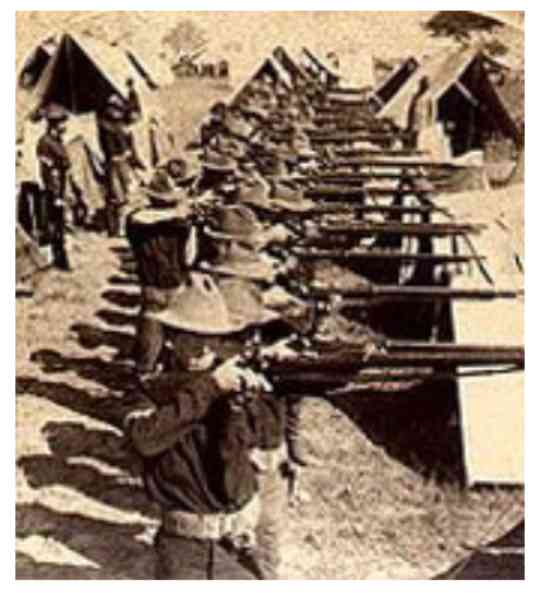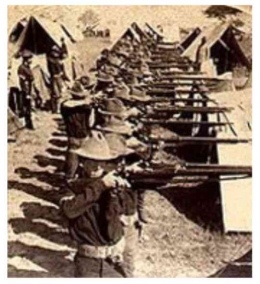Mercenaries have existed since the beginning of time, and most of military history has been privatized. Barbarian nations were integrated into Roman troops to conquer other barbarian nations. By the Middle Ages, mercenaries were trained men without a lord who sold their services to the highest bidder.
In 1648, changes started to occur. The Thirty Years' War, which was one of the most catastrophic conflicts in the history of Europe and was similar to World Wars I and II for Central Europe, came to an end with the Peace of Westphalia. Modern Germany and the Czech Republic lost almost a third of their population, and it took them a century to recover. Many of these incidents were the result of rogue mercenary groups, and leaders on all sides had implicitly agreed to monopolize force in order to eliminate the free market for it. That is, public armies ought to take the place of private ones.
However, as the frost of the Cold War began to melt, mercenaries emerged back into the light. The cause is straightforward: renting force is less expensive than owning one. Today, it seems common to keep a permanent military, but it is not. Owning one's own armed forces is immensely expensive, much like owning a private jet as opposed to purchasing an airline ticket as needed. When you could simply rent one, why make the costly investment in your own permanent army? This is why, with the exception of today's national armies, there has always been a thriving market for force.
The Return of the Mercenaries: A Glimpse of Blackwater and Wagner Group
Following 9/11, the US was drawn into two significant wars: one in Afghanistan and one in Iraq. More personnel were required after the initial invasions in order to educate the new security forces in both nations. Since the US military is an entirely voluntary organization, rapidly expanding its membership would need conscription, often known as the draft, which was implemented in Vietnam during World War II. One solution was to let the private sector step in and fill the void.
The enormous government contracts for the provision of a variety of services, including private security and protective services, quickly prompted the free market due to their potential for profit.
During the wars in Iraq and Afghanistan, companies such as Blackwater, Triple Canopy, and Dyncorp were responsible for fielding heavily armed and trained employees and also recruiting and organizing security contractors from a multitude of nations, such as Chile, Peru, and Uganda.
Things are going to become worse. The market for force has advanced beyond Blackwater in Iraq and gotten more lethal in only ten years. Mercenaries are no longer restricted to the fringe; they are now visible everywhere.
Soledar, a tiny mining town in Ukraine, had residences, structures, and buildings on August 1st, 2022. By January 10th, 2023, it has been reduced to ruins. The same day, a claim that Wagner had "taken control of this entire territory of Soledar" appeared on the Telegram messaging service. However, despite months of combat across Ukraine, this communication did not originate with the Russian army. It originated from Yevgeny Prigozhin, a Russian businessman who is linked to Vladimir Putin, the president of Russia.
Until recently, the Wagner Group was a secret operation and claiming a public victory like this was rare. The Wagner Group brand is now instantly recognized because of by their emblems, their insignia, and their online brand. These guys now are basically kind of like the McDonald's of the Russian way of war.
Understanding Private Warfare








